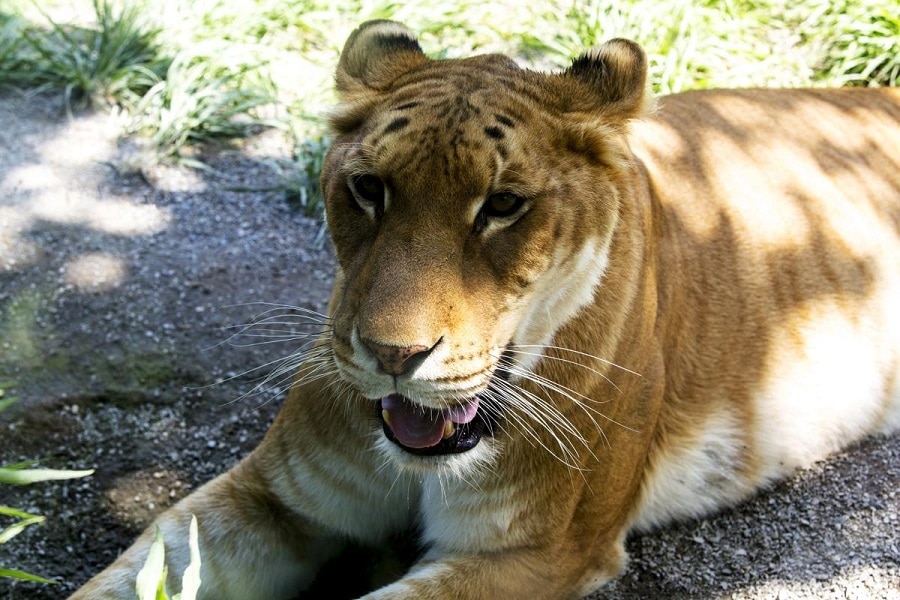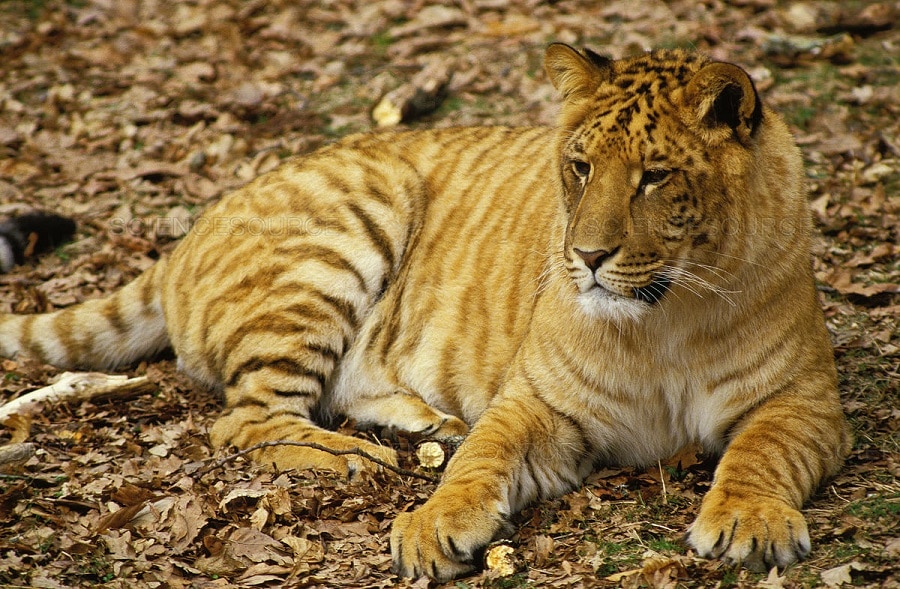A tigon is a big cat that is a product of mating between a lioness and a male tiger. It is a close yet different relative to its cousin, the liger, which is a hybrid of a male lion and a tigress. There is a lot to know about this interesting breed of animals.
Here are 11 Tigon Facts

1. THE FIRST TIGON
The first tigon is believed to have been successfully bred and born in India. This is similar to the record about the first liger so apparently, these two hybrid big cats originated from India.
2. OTHER NAMES
A tigon can also be referred to as a tigron, a tiglon or even a tion. These names are simply nomenclature appellations that bear reference to their parents’ name.
3. TIGONS ARE BANNED IN TAIWAN
Taiwan has placed a ban on the crossbreeding of lions and tigers to produce tigons. Interestingly, this ban also applies for the breeding of ligers as well. In contrast, there are tigons in about nine other countries including China, Iran, United Arab Emirates, The United States of America, Argentina, India, Russia and the Czech Republic.
4. THEIR BODY SIZE
The saying that an apple doesn’t fall far from its tree holds true for tigons as they appear to be no bigger than an average lion or tiger. An adult male tigon weighs about 450 pounds while a female weighs about 200 – 300 pounds. This bears a huge similarity to the weight of an African lioness, although smaller than an average Siberian tiger which is most times the father. It sharply contrasts with its cousin, the liger which can weigh up to 900 kg and holds the record as the world’s biggest cat.
5. APPEARANCE
A tigon has a dark brown skin with stripes on its fur. The color of its coat can range from pale ocher to yellowish brown. It also bears spots on its face much like its father’s, the tiger. Most tigons also present with a short trimmed mane around their neck.
6. FERTILITY
Hybrid males are hardly fertile and the tigon is no exception. The male tigon is sterile and cannot reproduce to bring about an offspring. However, female tigons are mostly fertile and can crossbreed with either a tiger or a lion. The resulting offsprings are the tigons and the tigons. The second generation hybrids, tigons are however quite rare.
7. COEXISTENCE OF PARENTS
Tigons rarely ever happen in the wild. This is because the habitat of a lion and a tiger doesn’t overlap. Reports exist of a cohabitation of the Asiatic lion and the Caspian tiger in countries like Iran and Turkey and also with the Bengal tiger in India. However, the difference in heat periods of the two animals makes the occurrence of a hybrid offspring almost dismissible. Tigons, like ligers, have been successfully bred only in confinement.
8. HEALTH OF A TIGON
A tigon is generally less healthy than its parents. it is very prone to developing cancer and other ill-fated illnesses as is popular among hybrids. It is most times born with congenital defects and hormonal imbalance issues. These factors contribute to its having a shorter lifespan than either a lion or tiger.
See Also: 7 Animals That Scientists Want To Bring Back From Extinction
9. THEY ARE MORE AGGRESSIVE THAN LIGERS
Tigons despite being of a smaller size to ligers have been found to be more aggressive than their bigger hybrid cousins. Not surprisingly, this is a contributing factor to fewer tigons being bred around the world. While ligers may largely be preferred for their size and ensuing awe, tigons are decidedly less preferred for being more aggressive and posing a larger risk.
10. THEY ENJOY SWIMMING
Lions are known basically are water haters and may not even swim to save their own lives. However, like their father, the tigons have a great swimming ability. They enjoy the water and do not hesitate to exhibit this love.
11. TIGONS SHOW CONFLICTING BEHAVIOURAL PATTERNS
The tiger is one animal that likes to keep to itself whereas the lion enjoys the social life immensely. This has led to a conflicting behavioral pattern in the tigon. The tigon mostly expresses a disturbing depressive state. People who argue against crossbreeding name this as one of the many disadvantages of competing with nature to create animals.
Knowing these facts, are you in support of crossbreeding? Will you love to own or at least see a tigon?















